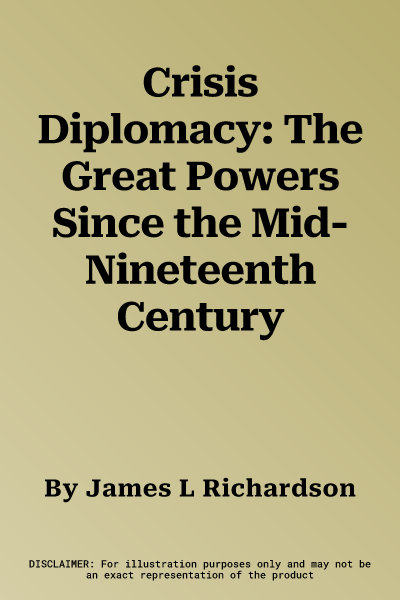James L Richardson
(Author)Crisis Diplomacy: The Great Powers Since the Mid-Nineteenth CenturyHardcover, 25 November 1994

Temporarily out of stock
Free Delivery
Cash on Delivery
15 Days
Free Returns
Secure Checkout

Part of Series
Cambridge Studies in International Relations
Part of Series
Cambridge Studies in International Relations (Hardcover)
Print Length
438 pages
Language
English
Publisher
Cambridge University Press
Date Published
25 Nov 1994
ISBN-10
0521453925
ISBN-13
9780521453929
Description
Product Details
Author:
Book Format:
Hardcover
Date Published:
25 November 1994
Dimensions:
22.81 x
15.19 x
3.71 cm
ISBN-10:
0521453925
ISBN-13:
9780521453929
Language:
English
Location:
Cambridge
Pages:
438
Publisher:
Series:
Weight:
752.96 gm